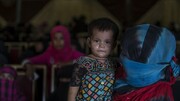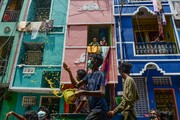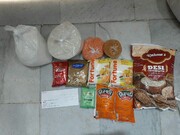Hawzah News Agency - (New Delhi - India) - Muslim charities and other voluntary organizations are helping the poor in India during a nationwide lockdown aimed at curbing the spread of the novel coronavirus.
As of Thursday, the death toll from the coronavirus had reached 423 and the number of positive cases 12,456, according to data compiled by the U.S.-based Johns Hopkins University.
As the Indian government extended the lockdown until early May, the poor and migrant workers who survive on daily wages do not even have enough money to support basic household expenses.
With no work during the last three weeks in the first phase of the shutdown, they have suffered the most sitting idle at home.
Prime Minister Narendra Modi said on Tuesday that implementation of the lockdown would be strictly guaranteed in the coming days to ensure that the virus does not spread to new areas. It means more difficult days for the deprived sections of society.
Laborers and migrant workers were left without food and shelter when Modi suddenly declared a 21-day nationwide lockdown last month. The lockdown was set to end on April 14 but has been extended until May 3.
Helping those in need
But soup kitchens and charity groups came to their rescue. Apart from various organizations in India, Muslim charity groups and individuals in their personal capacity have been trying to ensure these people do not go to bed hungry.
The Humanitarian Relief Society is involved in relief operations during the lockdown in various districts in the southern state of Karnataka.
Its general secretary, Mohammed Makakada, said they have distributed $200,000 worth of food items to the poor.
“We give food kits to the poor. A single kit contains food items worth around $16 (1,200 rupees). These were given to poor people and migrant workers from other states,” Makakada told.





Your Comment